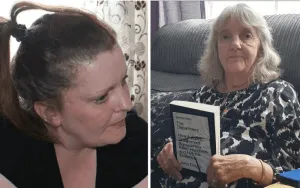The doctors’ union is facing fresh criticism after refusing to meet MPs and disabled activists to discuss continuing concerns over the government’s “fitness for work” test.
The Labour MP John McDonnell had asked the British Medical Association (BMA) to meet MPs and campaigners from the user-led grassroots groups Black Triangle and Disabled People Against Cuts (DPAC) to discuss the operation of the work capability assessment (WCA).
He said there was “continuing disquiet” about the WCA – which tests eligibility for the out-of-work disability benefit employment and support allowance (ESA) – from doctors as well as many disabled people who have been assessed, and “mounting demand” for it to be replaced with a “new, fairer system”.
But the BMA has refused the offer, telling McDonnell that “as this is not an area that we have done much work on recently, we will not be taking you up on your offer at this time”.
Black Triangle has been trying to persuade the BMA to tell every GP in the country about the existence of two ESA regulations that they believe prevent avoidable deaths connected with the WCA.
The regulations state that a claimant should not be found fit for work (regulation 29), or placed in the ESA work-related activity group (regulation 35), if such a decision would pose “a substantial risk” to their “mental or physical health”.
Black Triangle’s campaign has been so successful that the government’s independent reviewer, Paul Litchfield, concluded last November that regulation 35 appeared to be “the main driver” for a sharp increase in the proportion of new claimants being placed in the support group, for those who do not need to carry out any work-related activity.
Litchfield said that two-thirds of decisions made under regulation 35 were reached without a face-to-face assessment.
The latest ESA figures, published this week, show the proportion of completed assessments in which the claimant was placed in the support group rose from 12 per cent to 65 per cent between the first quarter of 2010-11 and the second quarter of 2014-15.
The assessment has caused mounting anger among activists and disabled benefit claimants since its introduction in 2008, because of links with relapses, episodes of self-harm, and even suicides and other deaths, among those who have been assessed.
Black Triangle is now hoping for a meeting with Scotland’s first minister, the SNP’s Nicola Sturgeon, for help in pushing the BMA to take action.
A letter to Sturgeon, from John McArdle (pictured), co-founder of Black Triangle, and Dr Stephen Carty, the campaign’s medical adviser, says the BMA’s refusal to act was “completely unacceptable” and “amounts to negligence”.
They add: “The obstacle we face is that after intensive lobbying of the BMA leadership for the regulations to be made known to all 55,000 UK GPs… it remains the case that the vast majority of GPs are unaware that there is a simple and devastatingly efficacious way that they can flag up a substantial risk of harm to the DWP and prevent catastrophic harm to their patients.”
Doctors at the BMA’s annual representative meeting in 2012 were almost unanimous in voting for the organisation to “demand” that the WCA should end completely.
The BMA was subsequently heavily criticised for failing to do anything “meaningful” to push for the WCA to be scrapped.
The BMA has so far failed to comment on why it refused McDonnell’s request for a meeting.

 ‘We will not give a single inch,’ disabled activists vow, as Kendall publishes disability cuts bill
‘We will not give a single inch,’ disabled activists vow, as Kendall publishes disability cuts bill DWP hides truth from coroner on exactly what happened in lead-up to Jodey Whiting’s suicide
DWP hides truth from coroner on exactly what happened in lead-up to Jodey Whiting’s suicide Call for public inquiry into deaths after coroner rules suicide was ‘triggered’ by DWP
Call for public inquiry into deaths after coroner rules suicide was ‘triggered’ by DWP